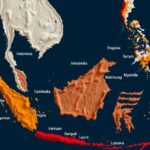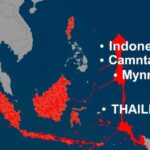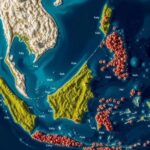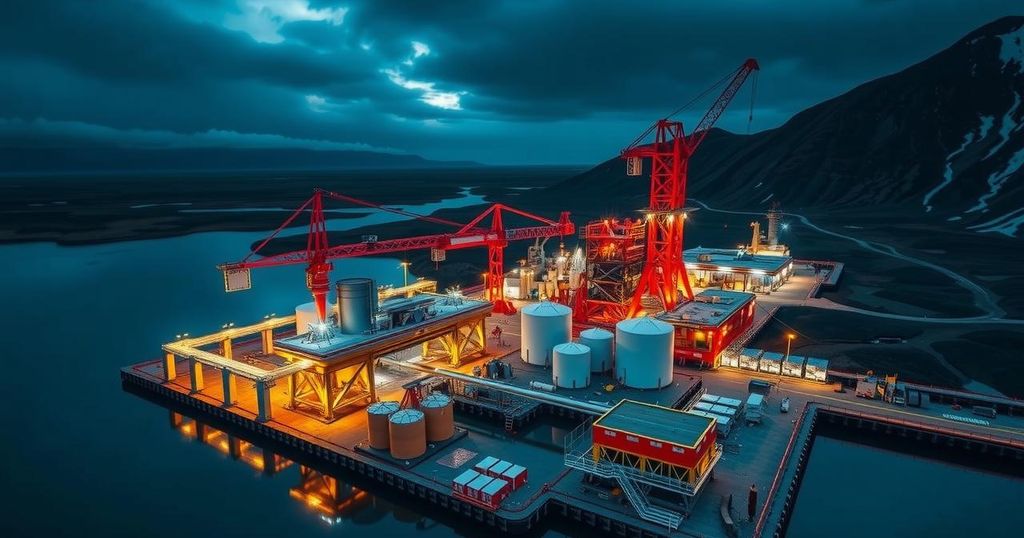Politics
ASIA, CHINA, DATA ANALYSIS, ECONOMIC DEVELOPMENT, FRESH, FRESH NEWS, GLOBE, IN, INFRASTRUCTURE DEVELOPMENT, INSTITUTE FOR OVERSEAS SAFETY AND SECURITY OF CHINA, INTERNATIONAL RELATIONS INSTITUTE OF CAMBODIA, JAKARTA POST, JO, JOKO “ JOKOWI, KIM, LIGHT, MEXICO, NOR, NORODOM SIHAMONI, NORTH AMERICA, ONWARD INDONESIA COALITION, PRABOWO SUBIANTO, ROYAL ACADEMY OF CAMBODIA, SINGAPORE, THAILAND, THE ROYAL ACADEMY OF CAMBODIA, TRADE, VIETNAM
Omar El-Sharif
Southeast Asia Key Headlines: Political Stability and Economic Growth
On November 30, 2024, significant headlines from Southeast Asia include Indonesia’s electoral stability under President Prabowo Subianto and a 6.5% hike in the minimum wage. In Cambodia, King Norodom Sihamoni promotes ties with Vietnam, while Myanmar focuses on local tyre production and substantial diesel imports. Vietnam approves a major textile factory investment, and Thailand faces flooding challenges requiring infrastructure investments.
The key headlines from Southeast Asia on November 30, 2024, reflect significant political and economic developments across Indonesia, Cambodia, Myanmar, Vietnam, and Thailand. In Indonesia, the ruling coalition led by President Prabowo Subianto has strengthened its position following regional polls, and the President has announced a 6.5% rise in minimum wage for 2025. Cambodia’s King Norodom Sihamoni has returned after fostering ties with Vietnam, while academic partnerships between Cambodia and China have been established. Myanmar reports substantial diesel imports as well as initiatives to boost local tyre production to meet national demand. Vietnam sees a new billion-dollar textile factory approved for construction, enhancing its manufacturing capabilities. Lastly, flooding threatens areas in Thailand, prompting authorities to urge preparedness among residents and significant funding has been allocated for infrastructure repair in flood-affected provinces.
The political landscape in Southeast Asia is critically influenced by both domestic and international relations. In Indonesia, recent electoral outcomes have confirmed the endurance of President Prabowo Subianto’s coalition, reflecting the electorate’s support for continuity. Meanwhile, Cambodia seeks to maintain its diplomatic relations with neighboring Vietnam amidst a growing partnership with China that aims to enhance educational collaboration. Myanmar’s economic strategies focus on self-sufficiency in essential goods, whereas Vietnam continues to expand its manufacturing sector. In Thailand, natural disasters pose challenges to local governance, leading to urgent calls for community resilience and infrastructure investment following recent flooding.
In summary, November 30, 2024, reveals a tapestry of political stability and economic growth juxtaposed with challenges posed by natural disasters and international collaborations. President Prabowo’s ruling coalition remains secure in Indonesia, while Cambodia strengthens ties with Vietnam and China. Myanmar is working towards improving self-sufficiency, and Vietnam is poised for significant industrial growth. Thailand’s response to flooding illustrates the ongoing need for preparedness amidst environmental challenges. These developments collectively indicate a region that is navigating both opportunities and obstacles in its pursuit of progress.
Original Source: www.bernama.com








Post Comment